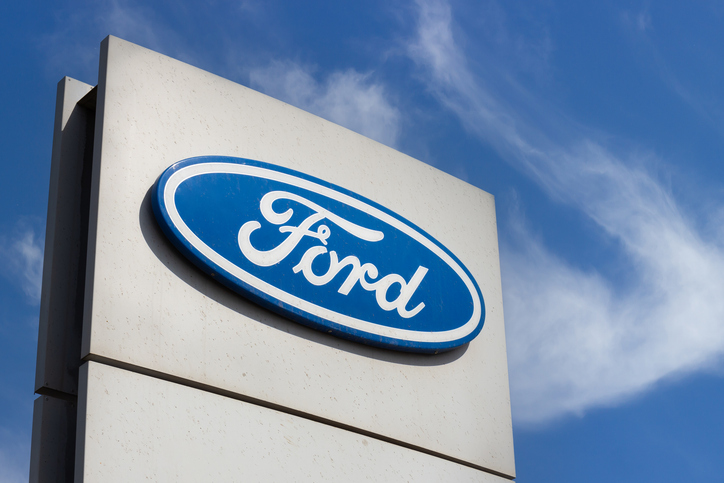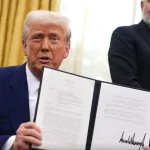Ford to Cut 4,000 Jobs in Europe as Electric Vehicle Struggles Persist
Ford has announced a significant restructuring plan involving the layoff of 4,000 employees in Europe, with the bulk of the job cuts impacting Germany and the UK. The decision reflects the challenges Ford and other automakers face as they transition to electric vehicles (EVs) amid growing competition, economic pressures, and policy misalignments.
The layoffs, which amount to 14% of Ford’s European workforce, will be completed by the end of 2027. Globally, the job cuts represent about 2.3% of Ford’s workforce, which includes 174,000 employees worldwide. The announcement follows earlier reductions in February 2023, when Ford cut 3,800 jobs in Europe, primarily in product development and administrative roles.
Ford's Struggles in the European Market
Ford’s struggles in Europe are rooted in several factors that have plagued the automotive industry, particularly the challenges of competing in the EV market. These include:
Weak Demand for EVs
Despite growing attention to EVs globally, Ford has struggled to convince European consumers to make the switch. Affordability remains a significant barrier as electric vehicles continue to carry higher price tags than their gasoline counterparts. Consumers are also hesitant due to concerns about charging infrastructure and range anxiety.
Lack of Government Support
Ford has been vocal about the lack of governmental backing for EV adoption, particularly in Germany, where subsidies for electric cars ended in late 2023. This policy shift contributed to a 28.6% drop in EV sales in Germany during the first nine months of 2024. Ford’s Chief Financial Officer John Lawler called on policymakers to provide stronger incentives, such as public investment in charging infrastructure and CO2 compliance flexibility to encourage EV adoption.
Fierce Competition
Chinese automakers have aggressively entered the European market, leveraging government subsidies to produce EVs at competitive prices. This has intensified pressure on traditional automakers like Ford, which must balance the high costs of EV production with pricing that appeals to budget-conscious consumers.
Economic and Regulatory Challenges
Economic headwinds, including inflation and trade tensions, have further complicated the landscape for automakers. Ford has also highlighted the misalignment between CO2 regulations and actual consumer demand for EVs, making it difficult to meet compliance targets without significant financial strain.
Impact on Germany and the UK
The restructuring plan will hit Germany, Europe’s largest economy, particularly hard. Ford has a substantial presence in the country, which is also home to Volkswagen and other major automakers grappling with similar issues. Germany’s economic challenges, coupled with political instability from an upcoming snap election in February, compound the uncertainty for workers and the broader industry.
The UK will also see significant layoffs, continuing a trend of downsizing in Ford’s European operations. The latest job cuts are part of Ford’s broader strategy to streamline operations and focus on high-growth areas.
The Broader Context: Industry-Wide Struggles
Ford’s challenges are not unique. The global automotive industry is undergoing a transformative period marked by increasing competition, shifting consumer preferences, and geopolitical tensions. Competitors like Nissan, Stellantis, and General Motors are also cutting costs and re-evaluating strategies as they face:
- Growing competition from Chinese automakers, particularly in Europe.
- Waning demand in China, the world’s largest car market.
- The high costs associated with scaling EV production.
In Germany, Volkswagen is reportedly considering factory closures, wage reductions, and job cuts to improve competitiveness. These measures highlight the immense pressure on European automakers to adapt quickly to a changing market landscape.
Related: Ford’s October Comeback: U.S. Vehicle Sales Surge 15.2% Amid Strategic Shifts and Strike Recovery
Ford’s Call for Government Action
Ford has emphasized the need for stronger public support to facilitate the transition to EVs. In a letter to the German government, CFO John Lawler outlined specific policy actions that could support automakers, including:
- Public Investments in Charging Infrastructure: Expanding the charging network to alleviate range anxiety and make EVs more practical for consumers.
- Financial Incentives: Restoring subsidies or introducing new incentives to lower the cost of EV ownership.
- Regulatory Flexibility: Adjusting CO2 compliance targets to better reflect market realities and consumer behavior.
Without these measures, Ford warns that the gap between European automakers and their subsidized Chinese counterparts will continue to widen.
Trade Tensions and Chinese Influence
The rise of Chinese EV manufacturers has become a central issue for European automakers. The European Union (EU) has responded by imposing tariffs on Chinese-made EVs, citing unfair subsidies provided by Beijing. However, the tariffs have not yet significantly slowed the influx of affordable Chinese EVs into the European market.
Meanwhile, the return of Donald Trump to the U.S. presidency has raised concerns about potential tariffs on European cars. These geopolitical tensions add another layer of complexity for automakers already grappling with supply chain disruptions and rising costs.
Ford’s Path Forward: Navigating the EV Transition
Ford remains committed to the EV market, but its challenges highlight the difficulty of transitioning to a more sustainable future while maintaining profitability. The company’s strategy moving forward includes:
- Cost Optimization: Streamlining operations and cutting expenses to improve financial performance.
- Focus on Innovation: Developing new EV models that cater to consumer needs and preferences.
- Strategic Partnerships: Collaborating with other players in the industry to share resources and reduce costs.
The coming years will be critical as Ford seeks to regain its footing in Europe and position itself as a leader in the EV space.
What This Means for the Automotive Industry
Ford’s decision to cut jobs and refocus its efforts underscores the challenges facing the entire automotive sector. Traditional automakers must navigate a complex landscape of economic pressures, regulatory demands, and shifting consumer preferences while competing with more agile, heavily subsidized newcomers.
The success of Ford’s restructuring plan will likely serve as a barometer for other automakers grappling with similar issues. As the industry evolves, the companies that can adapt quickly and effectively will be best positioned to thrive.










